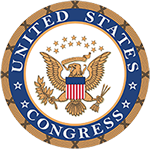Kiplinger Article on Elder Fraud Focuses on Prevention
EVERSAFE CITED AS SOLUTION
A November piece in Kiplinger focuses on fraud schemes that target vulnerable adults as well as steps that seniors and their loved ones can consider to prevent victimization. Miriam Cross’s comprehensive tips include:
- monitoring phone calls (Nomorobo.com is one such service) and enrolling in the National Do Not Call Registry;
- having a “refusal script” posted by the phone with polite language so that parents can read it out loud and quickly end unsolicited and unwanted calls (suggested by AARP’s Fraud Watch);
- combing through family members’ social media accounts to ensure personal information isn’t exposed to the public;
- considering financial advisors who are fee-only (as opposed to fee-based);
- using care in hiring and managing caregivers;
- locking up sensitive personal and financial documents; and
- using financial monitoring services to alert seniors and their designated contacts to suspicious activity, like EverSafe.
SCAM WATCH
CONGRESS PASSES SWEEPING RETIREMENT LEGISLATION
Congress has passed a law entitled “Setting Every Community Up for Retirement Enhancement,” known as the SECURE Act, as part of their spending package for 2020. The bill is now awaiting the President’s signature. The legislation provides advisors and  investors with “the most significant piece of retirement legislation in a decade,” according to a piece in Financial Advisor magazine. Some of the more significant features of the law include removing the age limit restricting IRA contributions; raising the age at which people need to start taking required minimum withdrawals; provisions that could encourage annuities in work-based retirement plans; and closing a loophole that allowed affluent investors to stretch the tax advantages of IRA across multiple generations, according to Barron’s. The new law should serve to encourage advisors and their small business clients to create employee retirement plans. While financial services professionals are praising the new legislation as a first step in improving financial security for retirees, others note that is does not address the largest problems, including “shoring up Social Security and the federal agency that backs pension programs.
investors with “the most significant piece of retirement legislation in a decade,” according to a piece in Financial Advisor magazine. Some of the more significant features of the law include removing the age limit restricting IRA contributions; raising the age at which people need to start taking required minimum withdrawals; provisions that could encourage annuities in work-based retirement plans; and closing a loophole that allowed affluent investors to stretch the tax advantages of IRA across multiple generations, according to Barron’s. The new law should serve to encourage advisors and their small business clients to create employee retirement plans. While financial services professionals are praising the new legislation as a first step in improving financial security for retirees, others note that is does not address the largest problems, including “shoring up Social Security and the federal agency that backs pension programs.
Can you Prevent Dementia?
EXPERTS BELIEVE CERTAIN FACTORS MAY DECREASE RISK
 When a loved one is diagnosed with dementia, family members struggle with the question of whether they should get tested for the Alzheimer’s gene. According to researchers, including a neurologist at Harvard Medical School, having the gene will not tell you whether you will develop the disease. It will only tell you if you have a greater or lower risk. Moreover, medical experts agree that there are steps individuals can take to reduce that risk. In the November issue of the Wall Street Journal, a recent study commissioned by a medical journal called The Lancet was highlighted. It concluded that up to 35% of dementia cases might be prevented with the right lifestyle changes. These include taking steps to control: “midlife obesity, physical inactivity, high blood pressure, Type 2 diabetes, social isolation and low education levels.” Perhaps with respect to brain health, as Benjamin Franklin once noted, “an ounce of prevention is worth a pound of cure.”
When a loved one is diagnosed with dementia, family members struggle with the question of whether they should get tested for the Alzheimer’s gene. According to researchers, including a neurologist at Harvard Medical School, having the gene will not tell you whether you will develop the disease. It will only tell you if you have a greater or lower risk. Moreover, medical experts agree that there are steps individuals can take to reduce that risk. In the November issue of the Wall Street Journal, a recent study commissioned by a medical journal called The Lancet was highlighted. It concluded that up to 35% of dementia cases might be prevented with the right lifestyle changes. These include taking steps to control: “midlife obesity, physical inactivity, high blood pressure, Type 2 diabetes, social isolation and low education levels.” Perhaps with respect to brain health, as Benjamin Franklin once noted, “an ounce of prevention is worth a pound of cure.”
SCAM WATCH
Protect Yourselves When Sending Cash to Peers
USE APPS WITH CARE
Paying back friends in the wake of holiday spending? Apps with names like PayPal, Zelle and Venmo have caught on as fast and easy ways to send money from mobile devices. They are linked to a bank account or credit card, and designed for convenience.
 But, importantly, these services lack traditional protections for your cash, and they pose potential risks if you are not careful. They typically will not protect you in case of a fraud—and speedy, easy-to-use features can facilitate fraud, according to the National Consumer Law Center. Money in such transactions may not be insured by the Federal Deposit Insurance Corporation. And these apps are not set up to provide the kind of personal support you may expect from your local bank.
But, importantly, these services lack traditional protections for your cash, and they pose potential risks if you are not careful. They typically will not protect you in case of a fraud—and speedy, easy-to-use features can facilitate fraud, according to the National Consumer Law Center. Money in such transactions may not be insured by the Federal Deposit Insurance Corporation. And these apps are not set up to provide the kind of personal support you may expect from your local bank.
One risk: If you purchase an item from a stranger, such as concert tickets, and the “seller” turns out to be a crook who never provides the promised item, you may have little recourse. Similarly, if you are the seller, a shady buyer may trick you into sending the item—and try to cancel the transaction before you get paid.
The Better Business Bureau advises several strategies to protect yourself with the new payment technology:
Use the highest security settings. These may include multi-factor authentication that relies on a PIN, or fingerprint ID.
Link your payments to a credit card. This may give you protection you do not get with a debit card or linking the app directly to your bank account.
Protect your phone with a password or biometric security device. If a crook gets hold of your phone, you do not want them to have access to your payment app.
Pay attention to the transaction process. Know that the process may take a few days. If you are selling something, make sure the money arrives before you ship the item.
It’s Holiday Time
RESOLUTION: TALK TO FAMILY MEMBERS ABOUT FINANCIAL HEALTH
The holidays are a wonderful time to spend quality time with loved ones—relaxing, eating good food, and catching up. It may also be a good occasion to introduce the idea of a ‘family conversation’ about financial health with older parents. What should this conversation cover? There are no set rules. It could involve their plans for retirement (if they plan to retire), a discussion about  existing estate planning documents, insurance information, and whether there is a power of attorney and/or a health care proxy in place. Adult family members, younger and older, may want to consider sharing the names and contact information of important professionals they have retained, including attorneys, health care professionals, financial advisors accountants, among others. Sharing the names of financial institutions where accounts are held and the types of accounts could also be helpful in the event of an emergency. According to a recent New York Times piece, “… less than 10 percent of adult siblings in the United States discuss money on a regular basis,” citing an Ameriprise Financial Family Wealth Checkup study. MoneyWise.com has some other great tips for having a conversation with family members about money. They include: planning for the discussion and being prepared for the issues you’d like to discuss; being sensitive to parents about aging challenges; and having the conversation early—in advance of a crisis. Having an open and respectful conversation about financial health, across generations, is healthy. It can save families stress and heartache in the event of a crisis. As the article noted: “…talking about money at the dinner table shouldn’t be taboo.”
existing estate planning documents, insurance information, and whether there is a power of attorney and/or a health care proxy in place. Adult family members, younger and older, may want to consider sharing the names and contact information of important professionals they have retained, including attorneys, health care professionals, financial advisors accountants, among others. Sharing the names of financial institutions where accounts are held and the types of accounts could also be helpful in the event of an emergency. According to a recent New York Times piece, “… less than 10 percent of adult siblings in the United States discuss money on a regular basis,” citing an Ameriprise Financial Family Wealth Checkup study. MoneyWise.com has some other great tips for having a conversation with family members about money. They include: planning for the discussion and being prepared for the issues you’d like to discuss; being sensitive to parents about aging challenges; and having the conversation early—in advance of a crisis. Having an open and respectful conversation about financial health, across generations, is healthy. It can save families stress and heartache in the event of a crisis. As the article noted: “…talking about money at the dinner table shouldn’t be taboo.”
EverSafe
NOW AN OFFER ON MORGAN STANLEY RESERVED WEBSITE
EverSafe is proud to announce that we are now officially an offering on Morgan Stanley’s Reserved Living and Giving website.